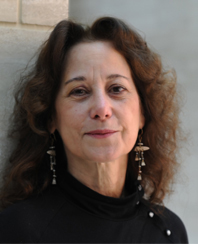ICCNS-SPRINGER Award 2015 Recipient
Professor Judith Campisi

Judith Campisi (1948 – 2024) received a PhD in Biochemistry from the State University of New York at Stony Brook, and postdoctoral training in cell cycle regulation and cancer at the Dana-Farber Cancer Institute and Harvard Medical School.
As an Assistant Professor at the Boston University Medical School, she began studying the role of cellular senescence in suppressing the development cancer. However, she soon became convinced that senescent cells also contributed to aging. She left Boston University as an Associate Professor to accept a Senior Scientist position at the Lawrence Berkeley National Laboratory in 1991. In 2002, she established a laboratory at the Buck Institute for Age Research, where she is a Professor.
At both institutions, Judith Campisi established a broad program to understand various aspects of aging, with an emphasis on the interface between cancer and aging. Her laboratory made several pioneering discoveries in these areas, and her research continues to challenge and alter existing paradigms.
In recognition of the quality of her research and leadership, Judith Campisi has received numerous awards. These include two MERIT awards from the US National Institute on Aging, awards from the AlliedSignal Corporation, Gerontological Society of America and American Federation for Aging Research, the Longevity prize from the international IPSEN Foundation, the Bennett Cohen award from the University of Michigan and the Schober award from Halle University (Germany).
Judith Campisi is an elected a fellow of the American Association for the Advancement of Science, and serves on numerous national and international editorial and scientific advisory boards.
On the occasion of the ICCNS-Springer Award, Professor Campisi gave a presentation entitled :
Cancer and aging: Rival demons and signaling mechanisms
SYNOPSIS: Aging is the single largest risk factor for developing a panoply of diseases, including diseases as diverse as neurodegeneration and cancer. I will discuss recent progress in the common signaling mechanisms and cell fate responses that drive disparate age-related diseases. At the heart of this convergence is the cell fate decision termed cellular senescence. The pleiotropic senescence response entails a complex signaling cascade that ultimately determines important physiological responses ranging from tumor suppression to wound healing.